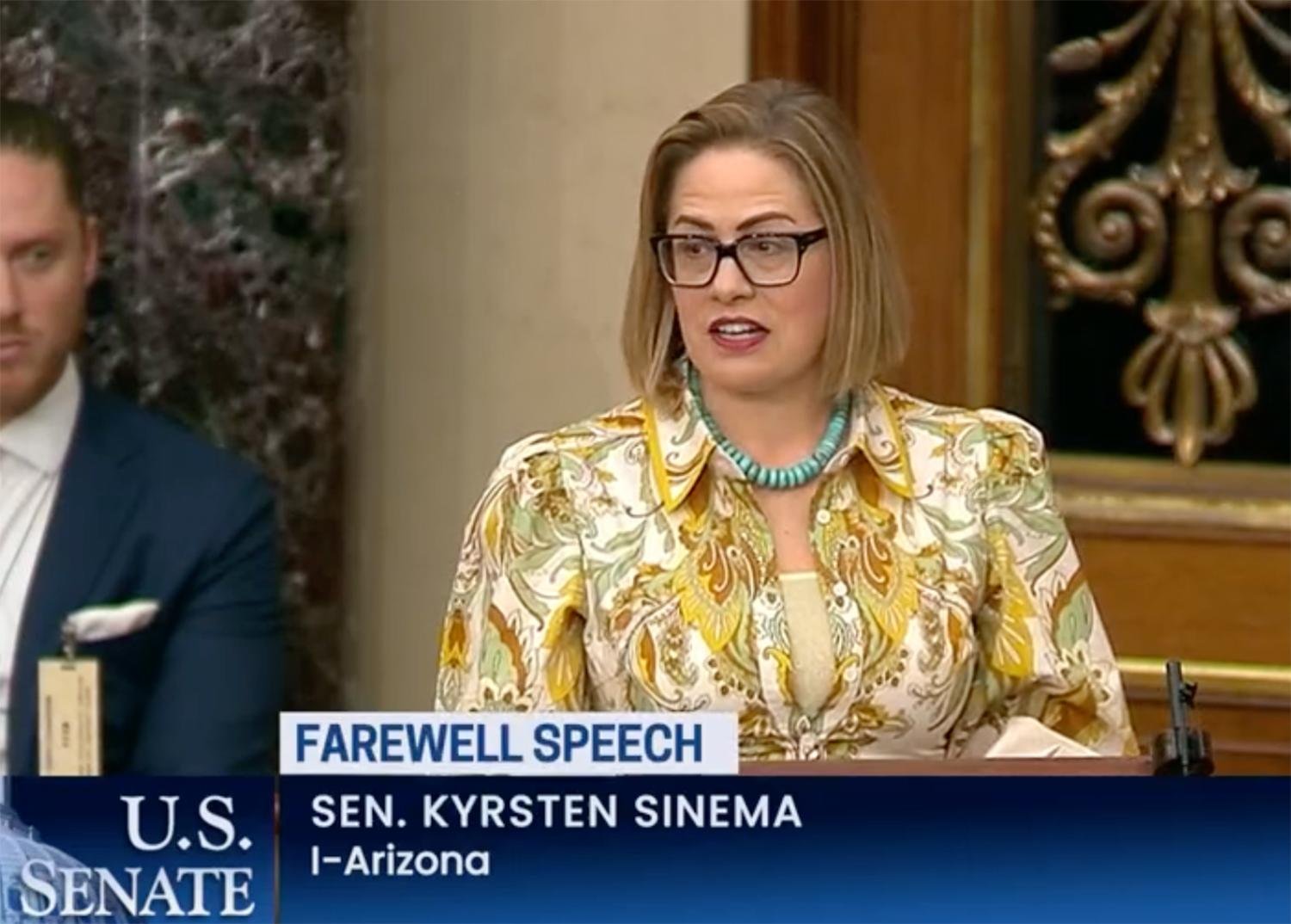border
Sinema’s Farewell: A Confession That Undermines Democracy

U.S. Sen. Kyrsten Sinema (D-AZ/I-Wall Street) delivered her farewell address on the Senate floor on Wednesday, revealing significant disconnects with the public’s sentiments. Critics argue that Sinema’s remarks reflect her detachment from the issues that affect everyday Americans, a sentiment that has fueled ongoing frustration towards her political decisions.
In her speech, Sinema acknowledged the complexities of American democracy, pointing out the inherent tension between promoting general welfare and securing liberty. She emphasized that the founding principles of the nation are designed to limit the power of tyrants, promoting a system that requires patience and diligent engagement. However, her subsequent comments suggest an overemphasis on bipartisanship and collegiality, often at the expense of addressing pressing public concerns.
Sinema particularly defended the filibuster, a procedural rule requiring 60 votes to advance legislation, characterizing it as a tool to protect minority rights. Critics contend this viewpoint overlooks the potential for decisive action in a system where majority rule could alleviate urgent social issues. Moreover, many within the Democratic Party see the necessity for reform, especially when considering the broader lack of representation for diverse voter needs.
Throughout her tenure, Sinema incurred criticism for prioritizing cross-party relationships over more immediate legislative actions that could benefit constituents. While she acknowledged the contributions of bipartisan colleagues, her focus seemed misaligned with the acute issues faced by many Americans, such as the economic disparities highlighted during her address.
The current political landscape paints a stark picture: as Republicans advance their agenda with simple majorities, Democrats have struggled to enact significant reforms due to the filibuster. Sinema’s insistence on bipartisanship when the stakes are high often left critical voices unheard, resulting in legislation that failed to fully address the needs of the populace—issues such as healthcare, immigration, and economic equity.
Sinema also touted her involvement in passing the Bipartisan Infrastructure Law, acknowledging its potential to enhance economic growth. Yet many believe this misses the mark. As she celebrated the potential of long-term investments, critics pointed out that immediate remedies to ongoing crises were largely sidelined.
While the senator positioned herself as a bridge-builder, frustration grows regarding her reluctance to engage with progressive ideals and the constituents who supported her. This has prompted many to question her commitment to the values she once advocated, especially as many Americans face hardships stemming from rising living costs and a system perceived as favoring elites.
As she concluded her tenure, critics lamented that her farewell did not appropriately acknowledge the challenges ahead or the urgency of addressing systemic injustices. In a time of heightened political volatility, her address has been viewed as emblematic of a misalignment between political institutions and the needs of the nation.
Whether Sinema’s political legacy will foster meaningful change or simply serve as a reminder of missed opportunities remains to be seen, amid calls for a more responsive and accountable government.


















